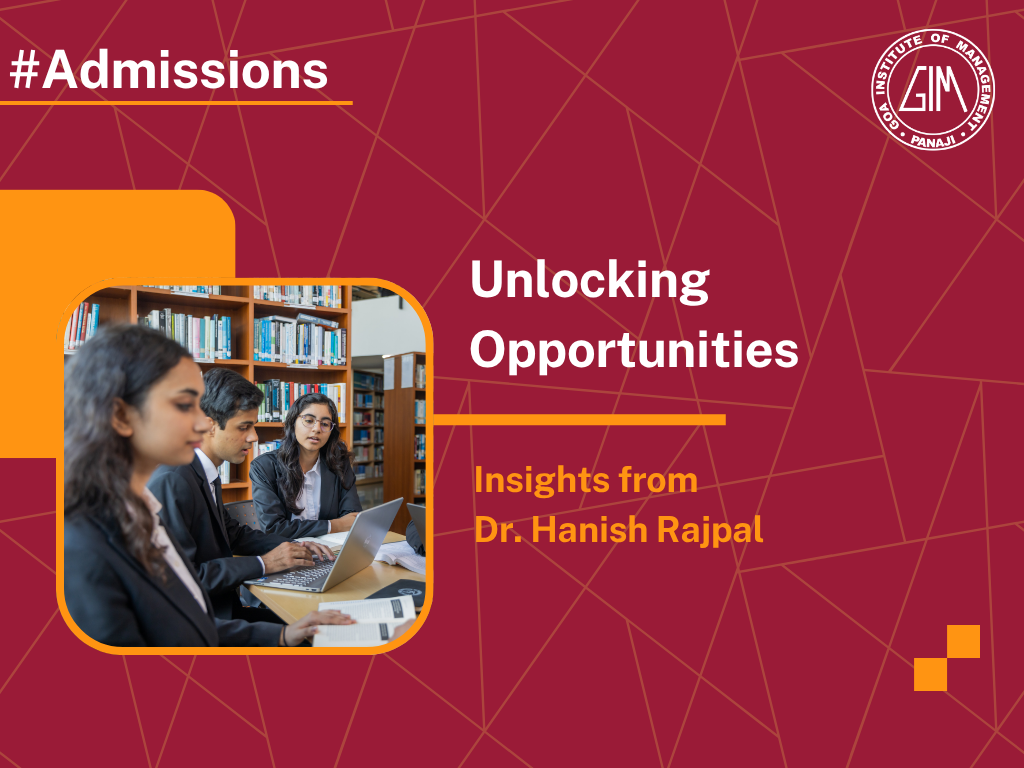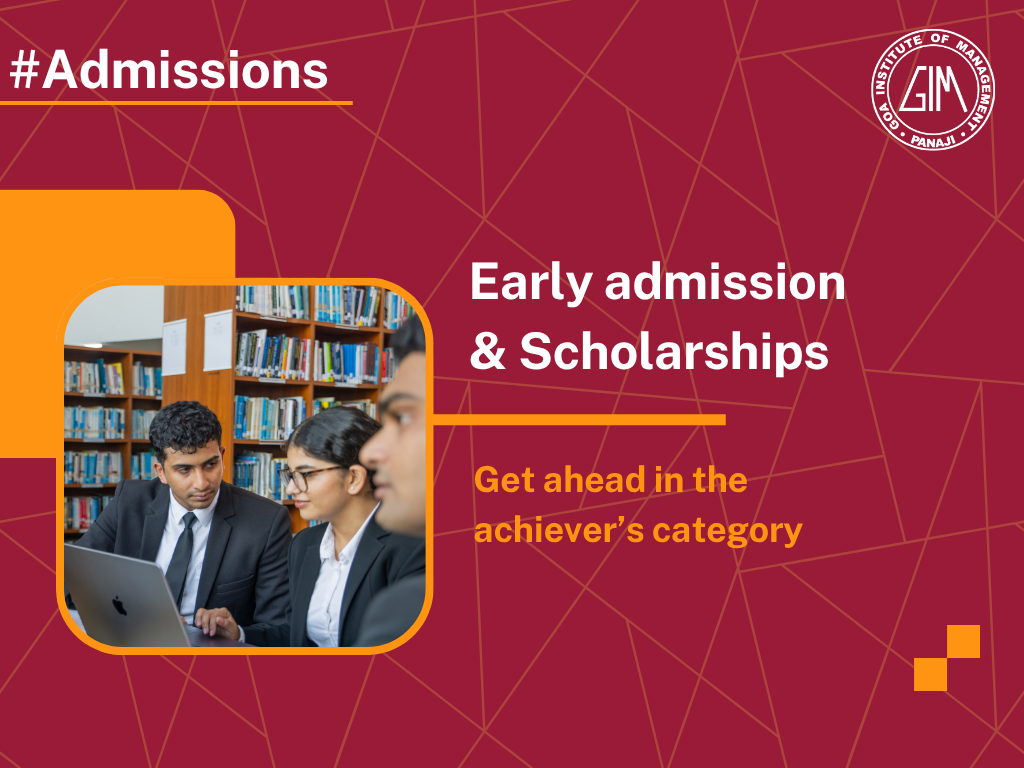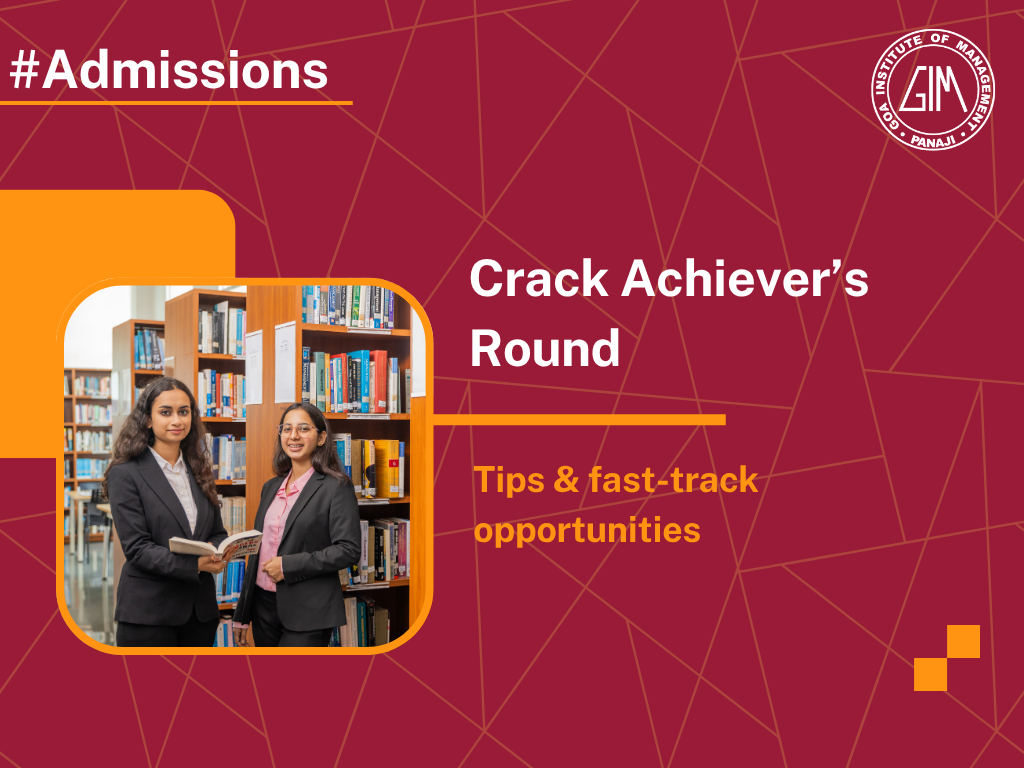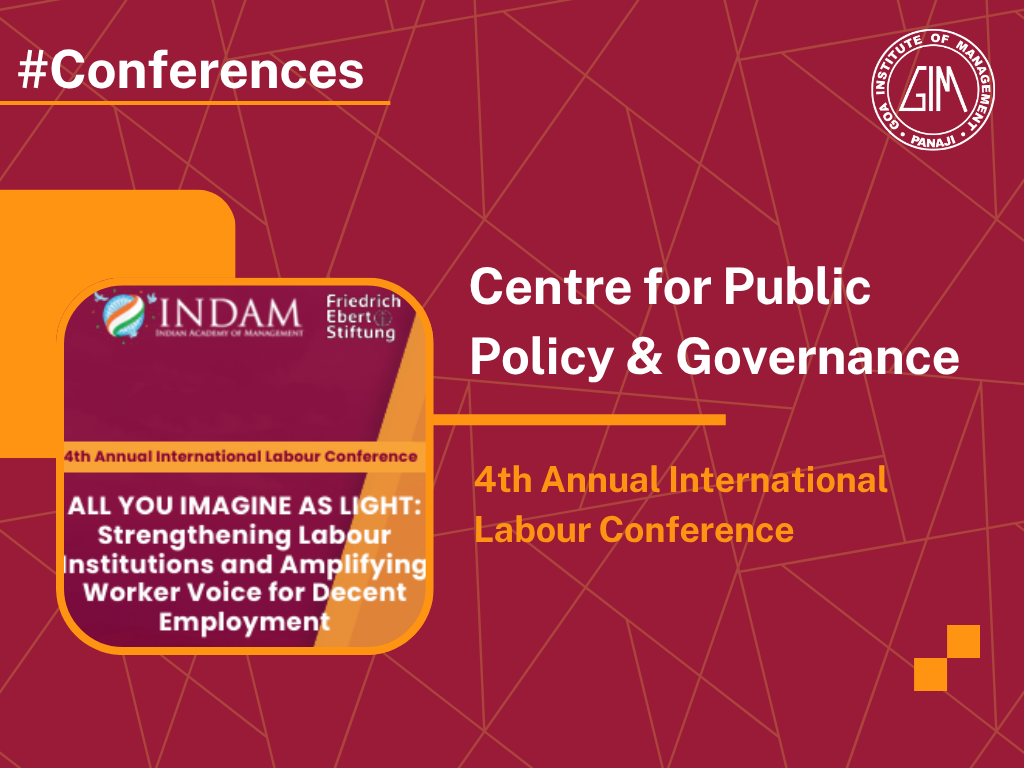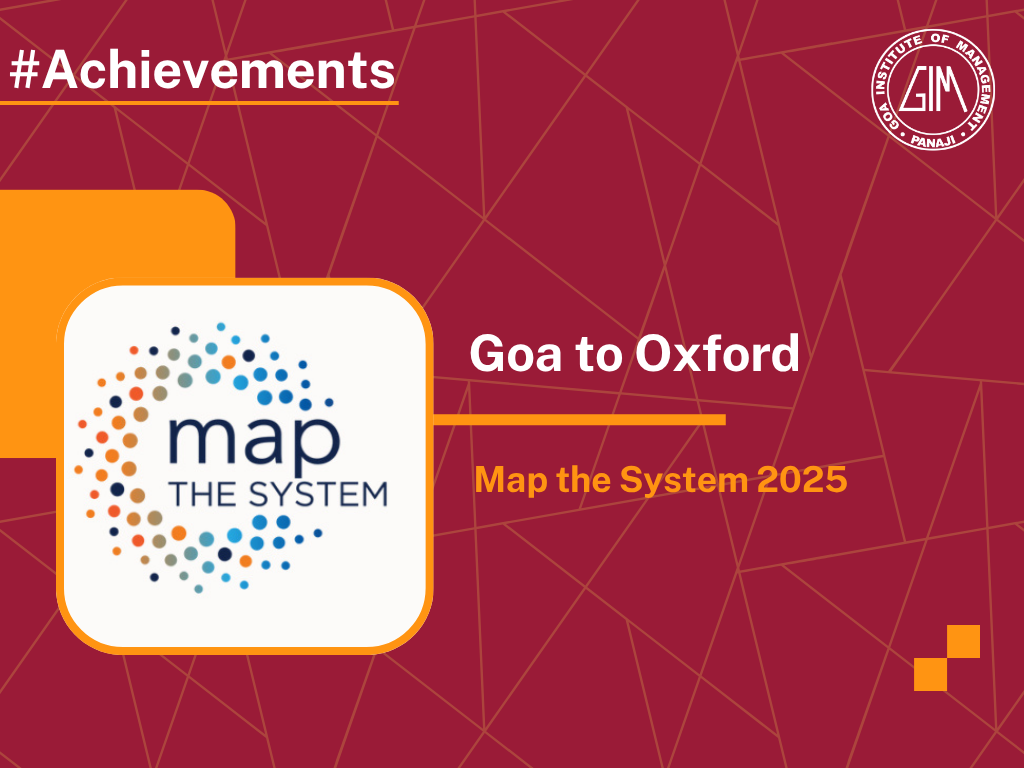Posted by
-
Summer Research Internship Program (SRIP)
-
Summer Internship Program
-
SLRI
-
SEE Learning
-
QS Rankings
-
Pre-Placement Offer (PPO)
-
phd
-
pgdm bda
-
Opportunities
-
nova sbe
-
MDP
-
Marketing
-
IDA
-
Goa Institute of Management
-
GiveGoa
-
GIM Alumni
-
fpm non residential
-
Fpm
-
Executive fpm
-
Event
-
Dual Degree Programmes
-
Dual Country
-
Dr. Hanish Rajpal
-
Doctoral
-
CPPG
-
Convocation
-
Conference
-
Co-LIFE
-
Campus Placement
-
Alumni Success Stories
-
Alumni Reunions
-
Alumni Relations
-
Alumni Office
-
Alumni Impact
-
Alumni Events
-
Alumni Engagement
-
Alumni
-
Admissions
-
achievement
Date
India’s First National Academic Conference on Mining Held at GIM
In a landmark moment for India’s resource governance discourse, the Goa Institute of Management (GIM) hosted the country’s first-ever academic conference dedicated to mining on July 24–25, 2025. Titled “Digging Deeper: Rethinking India’s Mining Economy,” the two-day hybrid conference—organized by GIM’s Centre for Public Policy and Governance (CPPG)—brought together top policymakers, economists, social scientists, legal scholars, journalists, industry experts, and grassroots activists to interrogate the political, economic, and human dimensions of India’s extractive sector.
At a time when India is seeking to enhance economic growth and ensure sustainability and social justice, the conference served as a vital national platform for evidence-based discussion and cross-sectoral collaboration.
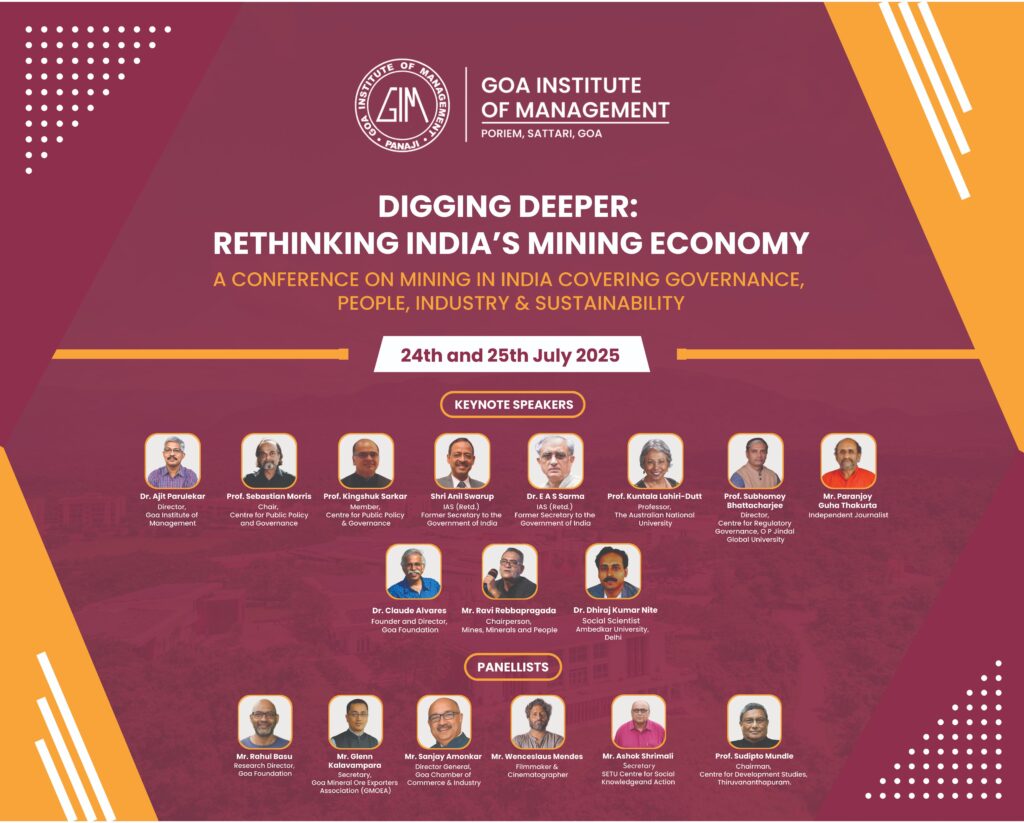
A Line-Up of Thought Leaders
The event featured eight keynote addresses from influential voices, including:
- Dr. E A S Sarma and Shri Anil Swarup, both former Secretaries to the Government of India, who offered insider perspectives on regulatory governance and policy evolution.
- Prof. Kuntala Lahiri-Dutt from the Australian National University and Dr. Dhiraj Kumar Nite from Ambedkar University Delhi, who unpacked mining through the lens of social justice, labour, and academia.
- Activist and thought leader Mr. Ravi Rebbapragada (Mines, Minerals and People) and journalist Mr. Paranjoy Guha Thakurta (Journalist and Political Economist) raised urgent questions about corporate accountability, media narratives, and community displacement.
-
Dr. Claude Alvares (Goa Foundation) and Prof. Subhomoy Bhattacharjee (OP Jindal Global University) added rich insights on environmental law and regulatory frameworks, respectively.
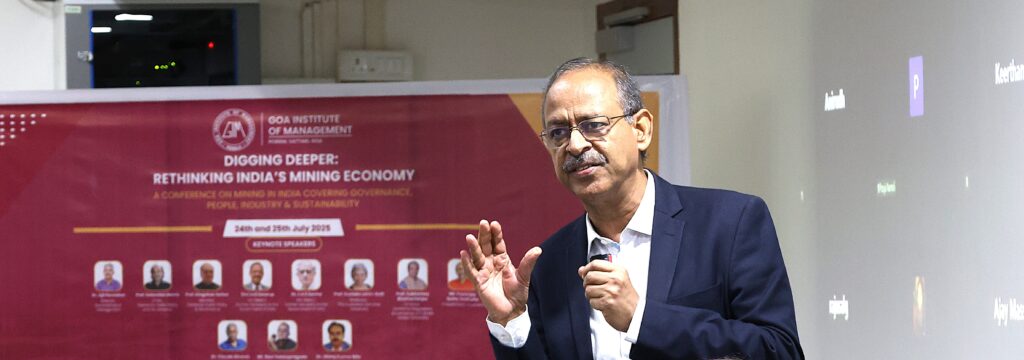
A high-profile panel discussion on Day 2 featured sector experts, including Mr. Rahul Basu (Goa Foundation), Mr. Glenn Kalavampara (Goa Mineral Ore Exporters Association), Mr. Sanjay Amonkar (Goa Chamber of Commerce & Industry), Mr. Wenceslaus Mendes (filmmaker and cinematographer), Mr. Ashok Shrimali (SETU), and Prof. Sudipto Mundle (Centre for Development Studies).
Themes of the Conference
The conference was structured around four critical sub-themes:
-
Political Economy of Mining:
Exploring the balance between state control, rent distribution, and corruption in resource extraction. -
Regulation, Contractual, Auction and Privatization Formats:
Analyzing new mining policies, auction models, and the interplay between public and private stakeholders. -
Environment, People, Law and Mining:
Addressing displacement, labour conditions, and the role of environmental justice and community rights. -
Mining in Goa:
With its checkered history, Goa served as a case study in ecological cost, legal battles, and the struggle for sustainable livelihoods.
In all, 24 research papers were presented, and several roundtable discussions unpacked issues like auction reform, intergenerational equity, human rights violations, the climate cost of mining, and institutional accountability.
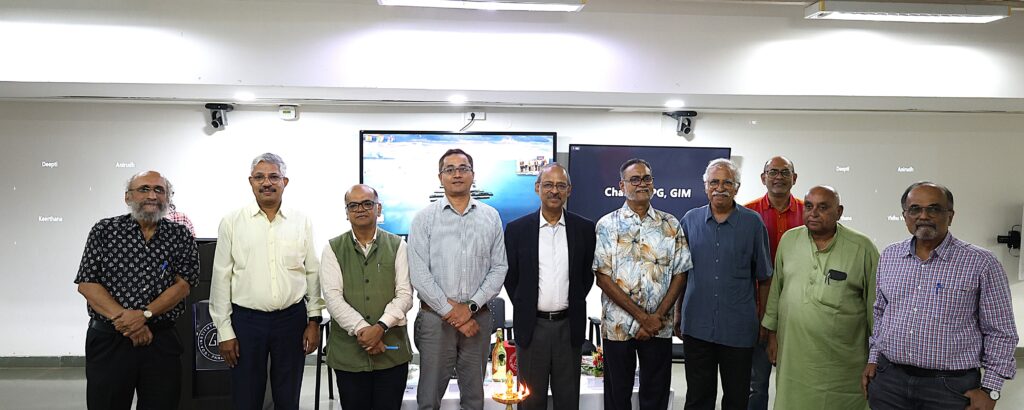
L-R: Mr. Paranjoy Guha Thakurta, Prof. Ajit Parulekar, Prof. Kingshuk Sarkar, Mr. Glenn Kalavampara, Shri Anil Swarup, Mr. Ravi Rebbapragada, Dr. Claude Alvares, Mr. Rahul Basu, Prof. Sudipto Mundle, and Prof. Sebastian Morris
A Contribution to National Discourse
This was possibly India’s first academic conference on mining. It generated powerful insights and highlighted systemic issues that deserve serious policy attention. The output will be published in the form of a book or collection of conference papers, which will serve academics, policymakers, and practitioners alike.
Prof. Sebastian Morris
Chair - CPPG
- Flawed auction and licensing mechanisms.
- Weak enforcement of environmental safeguards, many of which are mere platitudes.
- Lack of frameworks to positively empower local communities who could have been partners in sustainable mining.
- The deep nexus between the political elite and miners resulting from the above lacunae, thereby furthering the dysfunctionalities in mining.
- The potential of mining being restricted due to the design for conflict that the current policy and approach entail.



